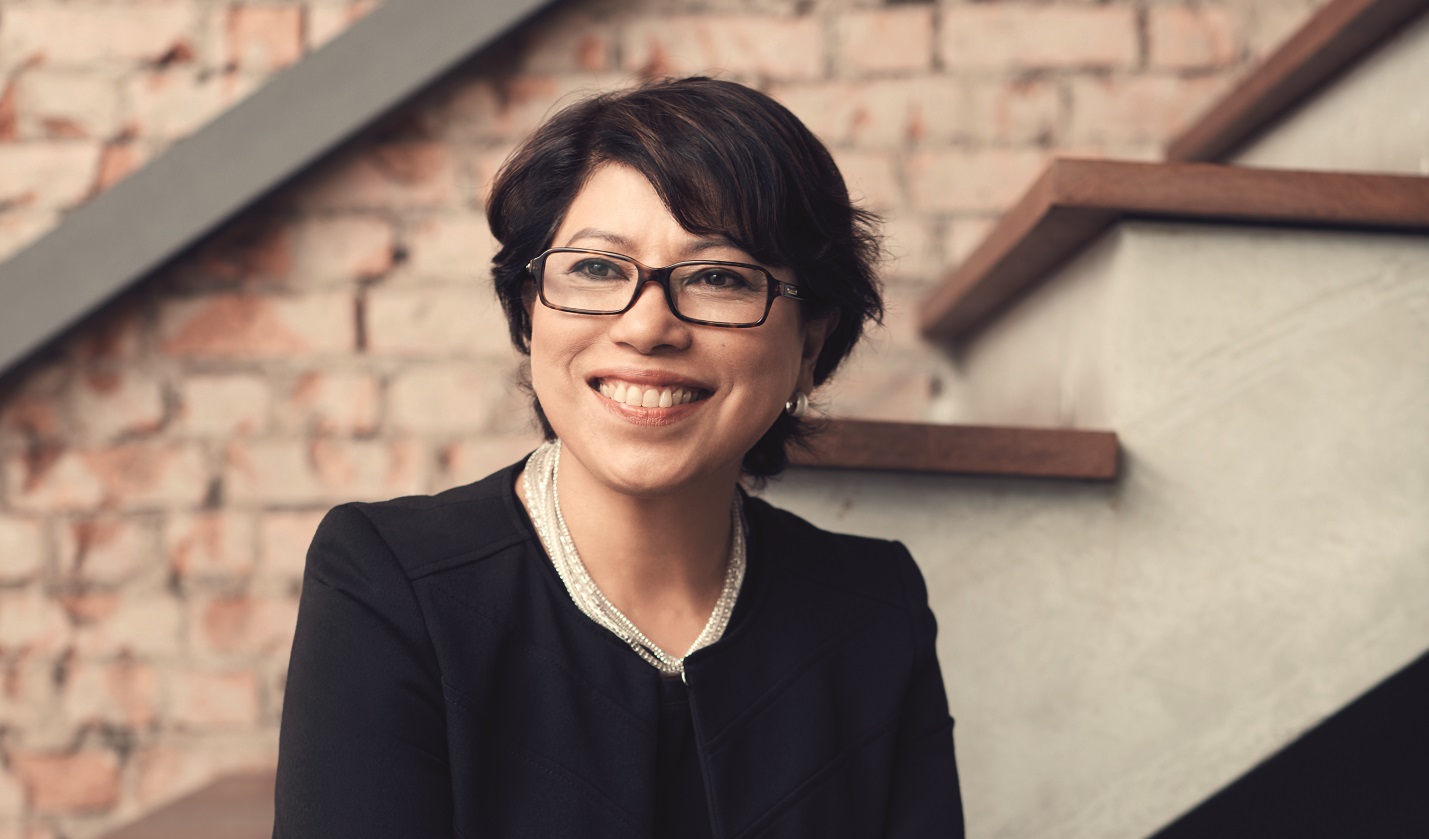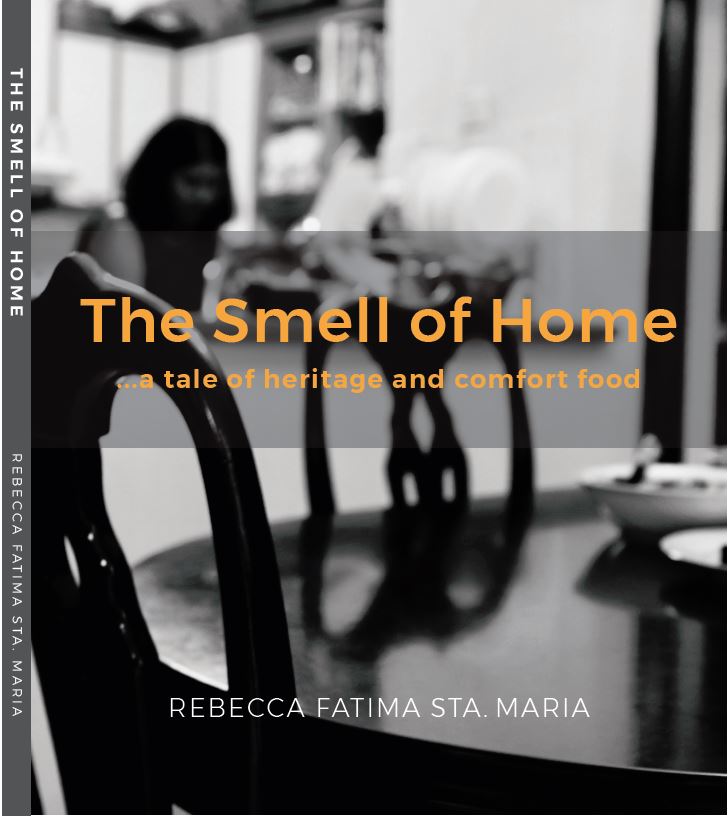
When Tan Sri Dr Rebecca Fatima Sta Maria set out to document favourite family recipes for her daughter Raisa and nieces and nephews who miss home-cooked food, familiar smells from her paternal grandmother’s kitchen kept coming back to her mind. Pineapple tarts fresh out of the oven, tempra (a fresh spice paste) sizzling in the wok, ikan bilis sambal, durians in season ... these are among her memories of growing up in an extended household headed by “Mama”, who was called that by her children and grandchildren.
The seed of The Smell of Home was planted by Raisa, who requested a recipe. There had been random and frequent phone calls from her cousins too, asking how to prepare this and that, dishes Mama taught Rebecca and her sisters Rachel and Assunta in the warm and noisy “big house” in Melaka’s Portuguese Settlement.
When Rebecca, 59, asked her five siblings, cousins and “our children” what recipes they wanted and the questions they had about these foods, their responses confirmed that she should not write just another cookbook.
“While putting together the things learnt in Mama’s kitchen, I decided I might as well tell her story, and stories of our own learning and early influences,” she says. So the book evolved and is now a tale of heritage and comfort food centred around “a family in multicultural Malaysia whose members still struggle to define themselves by race”.
And what a diverse mix her family is. Mama’s father was a Baba Melaka and her mother, a local girl of Portuguese descent. Her husband was Portuguese-Dutch. Some of Rebecca’s aunts and uncles married Malaysians of Malay, Indian and Chinese origin. Her husband is a Malaysian of Indian origin, Rachel married a Melaka Straits-born Chinese, and Assunta’s spouse is of Hokkien-Sri Lankan heritage. Her brother’s wife is a Hokkien from Melaka.
“I get very angry when the word pendatang is used [to describe those whose forefathers came from China and India],” Rebecca says. “That’s why we have to tell our story, to remind people there are more than two or three races in the country. There are other folks like us, and people must accept that.”
“Be true to yourself” was the principle she followed in the 35 years she spent working with the government, before retiring as secretary-general of the Ministry of International Trade and Industry (Miti) in July 2016. She was the first woman to be appointed to the position, in 2010.

Staying true to her roots led Rebecca to include pork recipes in The Smell of Home. Readers will find Porku Sayur Asin (a slow-cooked pork soup with preserved salted cabbage), which is one of Raisa’s favourite dishes, as well as Sey Bak (a tangy pork salad) and Captain Curry (cooked with sliced belly pork or chicken in bite sizes).
“I wouldn’t be true to myself if I didn’t include those recipes. They are a part of our culture,” she says.
Her favourite comfort food is Kari Keluak, and Mama would serve it whenever she returned home from University Malaya, where she did a bachelor’s degree in English Literature. There would also be Porku Tambriyu, Assam Pedas — “Mama would make a special effort to get ikan sembilang for that dish” — and Crab Curry, with flesh peeled from the shell!
Mama’s recipes, which Rebecca dutifully wrote down before leaving for university, also evoke happy memories of preparations for Lent, Easter, Festa San Pedro, weddings and Christmas.
“All of us, my uncles, aunties and my siblings, went through her kitchen,” she says. “As her first grandkids, Rachel, I and Assunta had to step in and help with the cooking — we had no choice. There were no constraints — we could do what we liked and we cooked because our [two] brothers were ‘hungry ghosts’. At the end of it, I enjoyed it.
“I hope I have captured what Mama taught me. I’ve made the recipes simple for our children and my sister Sara, who was 12 when Mama died and has no experience of working in the kitchen with her.”
Those who do remember Mama — born Margaret Lowe or Nonchik (short for Nona Kechik, or “small woman”, to her friends) — teaching the girls home-making skills so they could become good mothers and wives. “Then who will want to marry you?” the stickler for detail would chide when they did not follow her instructions on preparing food.
I hope I have captured what Mama taught me. I’ve made the recipes simple for our children and my sister Sara, who was 12 when Mama died and has no experience of working in the kitchen with her
“It was important to her to bring us up to be good homemakers,” Rebecca says. “She was a complicated Nyonya who was honest and faithful to her way of doing things. She would remind us that her style was halus (refined), unlike that of the thng suah lang (Hokkien for people from China), which was kasar (coarse).
“I’d like to think that I inherited her tenacity and resilience,” Rebecca writes in the book.
As Rebecca’s father and his siblings worked in various parts of the country, their 12 children were left in the care of Mama, the very-organised Nanny Gan (Rebecca’s aunt Madelin) and independent Nanny Dolly (her mother), a telephone operator with the Royal Malayan Police, who advised her daughter the night before her wedding: “Don’t change your name. Have a separate bank account.” Rita, her generous Inyak (godmother in Kristang), whom Rebecca lived with while studying in Kuala Lumpur, showed them the importance of time management. “These strong women shaped our values,” she says.
Retirement — which meant no more “contraints and challenges” — gave Rebecca time to work on the self-published The Smell of Home, as “a gift for our children”. While she was at Miti, she co-wrote The Headless Chicken and The Spark, which was on the ministry’s leadership learning journey.
And before that, she won the American Academy of Human Resource Development’s Malcolm Knowles Award in 2000 for the best dissertation in the field of HR development.
Rebecca looks forward to doing more travelling, reading and writing. A thematic compilation of articles written her retired journalist husband, S Jayasankaran, is a possible project. “I haven’t dismissed the idea of another cookbook, but I have to think about it,” she says.
For copies of The Smell of Home, email [email protected].


